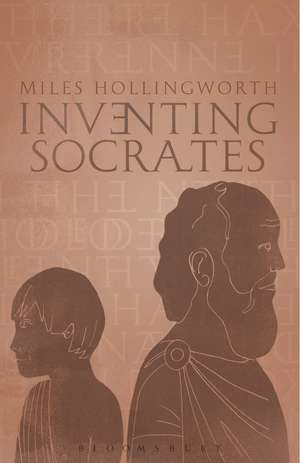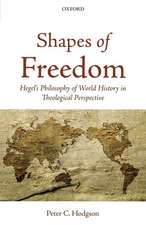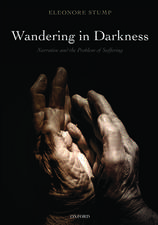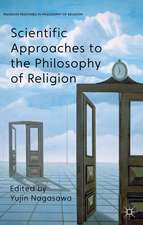Inventing Socrates
Autor Dr Miles Hollingworthen Limba Engleză Paperback – 26 aug 2015
| Toate formatele și edițiile | Preț | Express |
|---|---|---|
| Paperback (1) | 189.18 lei 6-8 săpt. | |
| Bloomsbury Publishing – 26 aug 2015 | 189.18 lei 6-8 săpt. | |
| Hardback (1) | 829.13 lei 6-8 săpt. | |
| Bloomsbury Publishing – 26 aug 2015 | 829.13 lei 6-8 săpt. |
Preț: 189.18 lei
Preț vechi: 256.65 lei
-26% Nou
Puncte Express: 284
Preț estimativ în valută:
36.21€ • 39.35$ • 30.44£
36.21€ • 39.35$ • 30.44£
Carte tipărită la comandă
Livrare economică 21 aprilie-05 mai
Preluare comenzi: 021 569.72.76
Specificații
ISBN-13: 9781623564483
ISBN-10: 1623564484
Pagini: 176
Dimensiuni: 140 x 216 x 13 mm
Greutate: 0.23 kg
Editura: Bloomsbury Publishing
Colecția Bloomsbury Academic
Locul publicării:New York, United States
ISBN-10: 1623564484
Pagini: 176
Dimensiuni: 140 x 216 x 13 mm
Greutate: 0.23 kg
Editura: Bloomsbury Publishing
Colecția Bloomsbury Academic
Locul publicării:New York, United States
Caracteristici
Argues that the Intellectual Conscience is central to unlocking the relationship of religion and science
Notă biografică
Miles Hollingworth is Professor in the Patristic Institute, the Augustinianum, Rome, Italy. He is the author of The Pilgrim City (2010), which was shortlisted for the Royal Historical Society's Gladstone History Book Prize, and Saint Augustine of Hippo: An Intellectual Biography (2013), both published by Bloomsbury. His writing has won awards from the Society of Authors and the Royal Society of Literature.
Cuprins
Chapter One : PredestinationChapter Two : The Way of TruthChapter Three : The Soul of BloodChapter Four : The Fatal MasksBibliographyIndex
Recenzii
Anyone who wishes to think beyond our conventional categories of theories of progress, the history of western scientific rationality, the impasse of science vs. religion and philosophy vs. theology, or the contest of global values will find this book exhilarating, stimulating, perplexing, and refreshing-a dazzling anti-history of the tradition of western rationality.
This is an engaging and original book that unsettles the received narrative of Early Greek philosophy as the birth of reason. The book's aim is to remythologize reason right from the quick - relishing the religious impulse of all genuine philosophical reflection. In Hollingworth's hands the history of ideas becomes a living thing, a love song to the fragile moments of understanding that always open onto that which exceeds us. Perhaps best of all, the book performs its own argument. The reader is left to share the author's grateful wonder that there is something rather than nothing.
In Plato's great analogy for education-the analogy of the cave-it is far from clear what would compel a soul, having ascended to a sunlit world of clarity, to return to a place of depths and indetermination. Plato's Socrates speaks of necessity and suggests the need, if not the desire, for a conversion of all things indeterminate into perfected beauties, like butterflies on pins. Hollingworth adds the framing of the Presocratics and returns us, more explicitly than does Plato, to an invented Socrates, standing, like the concept of invention itself, at the crossroads of science and imagination. Indeed Socrates will have become that crossroads by way of Hollingworth's fierce and visionary prose. Here is not a crossroads to be left behind, as we either ascend towards an enlightened modernity or regress towards ancient imaginings; Hollingworth exhorts us instead to inhabit a capacious psychology, ever at a crossroads, and take our necessities from there. Inventing Socrates is an unexpected book, a knock at the door from the God within.
This is an engaging and original book that unsettles the received narrative of Early Greek philosophy as the birth of reason. The book's aim is to remythologize reason right from the quick - relishing the religious impulse of all genuine philosophical reflection. In Hollingworth's hands the history of ideas becomes a living thing, a love song to the fragile moments of understanding that always open onto that which exceeds us. Perhaps best of all, the book performs its own argument. The reader is left to share the author's grateful wonder that there is something rather than nothing.
In Plato's great analogy for education-the analogy of the cave-it is far from clear what would compel a soul, having ascended to a sunlit world of clarity, to return to a place of depths and indetermination. Plato's Socrates speaks of necessity and suggests the need, if not the desire, for a conversion of all things indeterminate into perfected beauties, like butterflies on pins. Hollingworth adds the framing of the Presocratics and returns us, more explicitly than does Plato, to an invented Socrates, standing, like the concept of invention itself, at the crossroads of science and imagination. Indeed Socrates will have become that crossroads by way of Hollingworth's fierce and visionary prose. Here is not a crossroads to be left behind, as we either ascend towards an enlightened modernity or regress towards ancient imaginings; Hollingworth exhorts us instead to inhabit a capacious psychology, ever at a crossroads, and take our necessities from there. Inventing Socrates is an unexpected book, a knock at the door from the God within.















